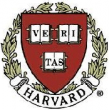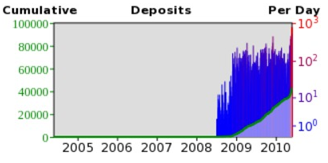

Professor Robert Darnton of Harvard University has given a splendid (if a trifle US-centric, indeed Harvard-centric!)
talk at the
Congress of the Humanities and Social Sciences at
Concordia University.
Caveat 1: Journal Articles Versus Books. Professor Darnton's three jeremiads (one on journal articles, two on books) are all spot-on -- but best kept separate, partly because only journal articles are, strictly speaking, Open Access (OA) issues, but mostly because the journal article access problem already has a straightforward solution -- and
Harvard was the first university in the US (though only the 16th worldwide!) to adopt it: Mandating "Green" OA self-archiving of all journal articles published by its authors.
In contrast, book OA cannot be mandated, for the simple reason that all journal article authors already wish to give away their articles free for all users online, rather than leaving them accessible only to users at universities that can afford to subscribe to the journal in which they were published; this is far from being true of the authors of all or even most books. Hence trying to treat or even conceptualize journal article access and book access as the same problem would handicap the journal article access problem -- which already has a simple, immediate, and complete solution (OA mandates) -- with the complications of the book access problem, which does not.
Caveat 2: The "Give-Away/Buy-Back" Argument. Nor does it diminish the importance and effectiveness of the mandate solution to the journal article access problem which Harvard has so successfully championed that one of the arguments many (including Professor Darnton) have invoked in its favour happens to be specious. The need and wish on the part of the authors of refereed journal articles (for the sake of both research progress and the progress of their own careers) to make them accessible to all would-be users -- rather then leaving them accessible only to those users whose institutions can afford to subscribe -- is already decisive. There is no need to add to it the "
we give it to publishers for free and then we have to buy it back" argument, because it's just not valid:
When a university subscribes to a journal, it does not do so in order to buy
back its own published research articles: It does so in order to buy
in the research articles published by
other universities! In that respect, the transaction is the same as it is with books -- except that book authors may be seeking royalties whereas journal articles are not.
So this specious argument -- though it does well express the frustrations of university libraries because of the way their swelling annual serials budgets keep cannibalizing their book budgets -- is not needed in order to make the case for mandating journal article OA: The fact that mandating journal article OA is feasible and effective, that it maximizes article usage and impact, and that it is beneficial and desirable to all journal article authors is already argument enough, and decisive.
Caveat 3: Funding Gold OA Without Mandating Green OA. Similarly unnecessary is continued worry about university journal budgets --
once universities universally follow Harvard's example and mandate Green OA self-archiving. For once all journal articles are freely accessible online, whether and when to cancel unaffordable journals is no longer the agonizing problem it is now: The inelastic need is satisfied by the Green OA version, hence the subscription demand (and the resultant cannibalization of book budgets by journal budgets) is no longer inelastic.
In addition to its Green OA self-archiving mandate, Harvard has also launched the Compact for Open-Access Publishing Equity (
COPE), a commitment to provide some money to pay the costs of Harvard authors who wish to publish in "Gold" OA journals (journals that make their articles OA). The purpose of funding COPE is to encourage publishers to make a transition to Gold Open Access publishing. This is commendable, but it needs to be noted that it is not really urgent or necessary at this time, when journal publication is still being abundantly funded by universities' annual subscriptions -- which cannot be cancelled until and unless Green OA first prevails!
So committing spare funds that Harvard may have available to pay for Gold OA for some of Harvard's article output is of course welcome, given that Harvard has already mandated Green OA for all of its article output. But alas COPE has now inspired membership by other universities that are emulating Harvard only in committing funds to pay for Gold OA, not in mandating Green OA, thinking that they are thereby doing their bit for OA! The Harvard model would be much more useful for the universities worldwide that are keen to emulate it if it were made clear that COPE should only be committed as a supplement for a Green OA mandate, not as a substitute for it. (See some of my own
jeremiads on this matter.)
Fortunately, Concordia University, the host for this Congress, has adopted a
Green OA mandate before even thinking about whether or not it has any extra cash to commit to COPE!
(If and when universal Green OA frees universities to cancel journals, it will by the same token
free that windfall cancellation cash to pay for Gold OA.)
Stevan Harnad
American Scientist Open Access Forum



 Professor Robert Darnton of Harvard University has given a splendid (if a trifle US-centric, indeed Harvard-centric!)
Professor Robert Darnton of Harvard University has given a splendid (if a trifle US-centric, indeed Harvard-centric!) 

